EXPLORE
29 Foods Your Dentist Wishes You Would Stay Away From
Published
3 months agoon
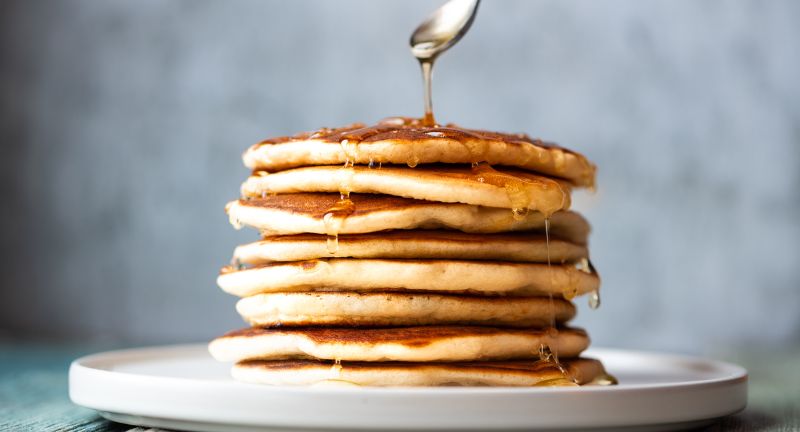
iStock
Your diet plays a crucial role in maintaining a healthy smile, but some foods can do more harm than good to your teeth. From sugary treats to acidic beverages, certain items create a perfect storm for cavities, enamel erosion, and stains. While indulgence is fine in moderation, understanding the risks these foods pose can help you make smarter choices. Dentists often see the consequences of these dietary pitfalls and wish their patients would avoid them altogether. Here are 30 foods your dentist would prefer you keep off your plate—or at least enjoy sparingly.
Sticky Sweets and Candies

Shutterstock
Sticky sweets like gummy bears, caramel, and toffee are a dentist’s nightmare. These candies adhere to teeth and linger, creating a perfect environment for bacteria to thrive. The longer sugar stays on your teeth, the greater the risk of cavities and decay. Even thorough brushing sometimes struggles to remove their sticky remnants.
Hard Candies
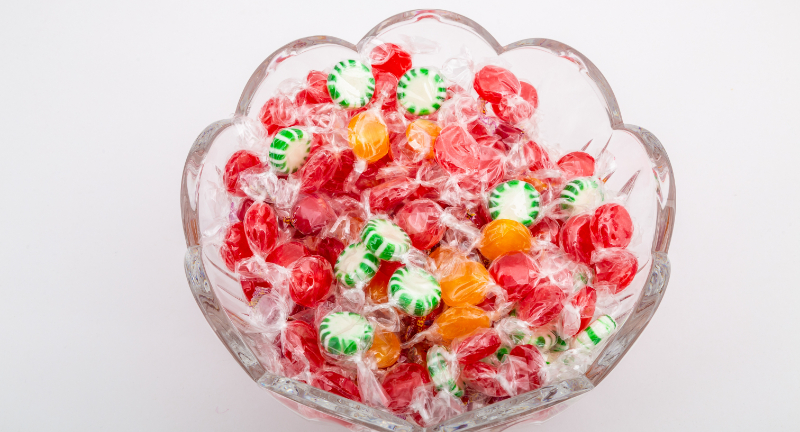
Shutterstock
Hard candies dissolve slowly, bathing your teeth in sugar for extended periods. If bitten, they can cause chips, cracks, or even fractures in your teeth. They may seem harmless, but the combination of sugar exposure and the risk of dental damage makes them problematic. Dentists recommend avoiding these sweets or enjoying them sparingly.
Chewing Gum with Sugar
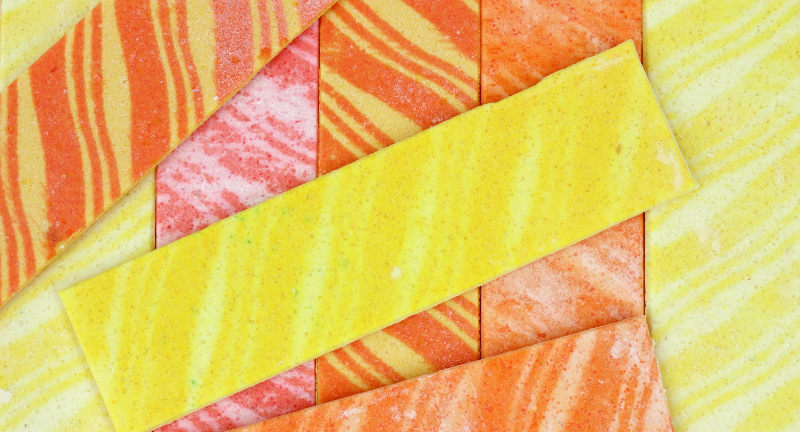
Shutterstock
Chewing gum with sugar not only coats your teeth in sweetness but also feeds harmful bacteria in your mouth. While chewing stimulates saliva production, which is good for oral health, the sugar content negates those benefits. Over time, this can lead to cavities and gum disease. Opt for sugar-free alternatives to protect your teeth while still enjoying gum.
Dried Fruits
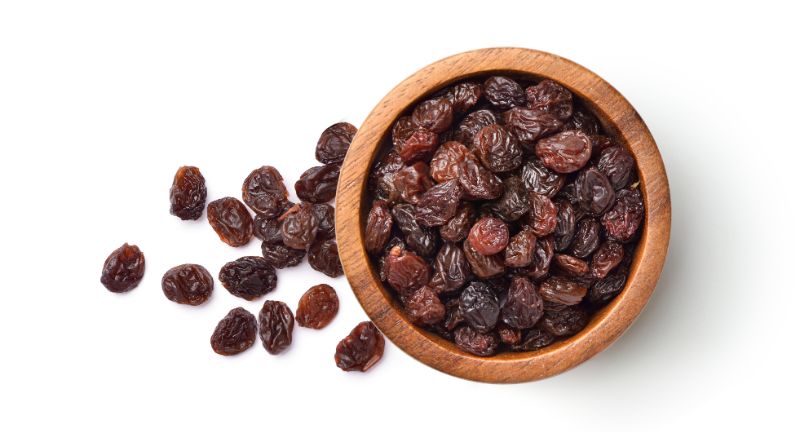
Shutterstock
Dried fruits like raisins and apricots may seem like a healthy snack, but their sticky texture is bad news for teeth. The drying process concentrates the natural sugars, turning these fruits into a sugary adhesive that clings to your enamel. Bacteria thrive on this residue, increasing the risk of cavities. While nutritious, dried fruits are best enjoyed in moderation and followed by thorough brushing.
Soft Drinks and Sodas
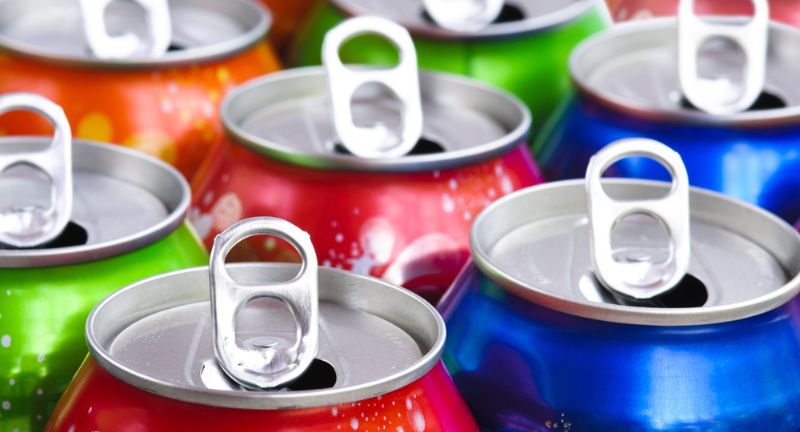
Shutterstock
Soft drinks and sodas combine high sugar content with acidity, creating a double threat to dental health. The sugar feeds bacteria, while the acid erodes enamel, leaving teeth vulnerable to decay. Even diet sodas, while sugar-free, are still acidic and can weaken enamel over time. Drinking water instead can save your teeth from unnecessary harm.
Energy Drinks
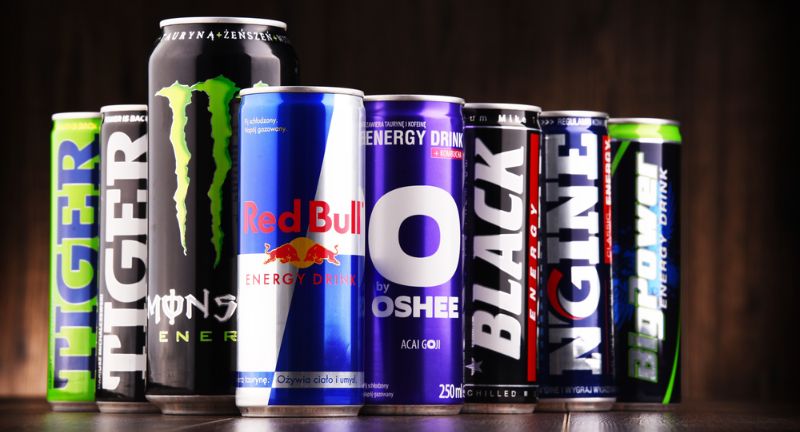
Shutterstock
Energy drinks are loaded with sugar and acids that can wreak havoc on your teeth. The high acidity erodes enamel, while the sugar promotes the growth of cavity-causing bacteria. Sipping these drinks frequently exacerbates the damage, as your teeth are bathed in harmful substances over time. Dentists often recommend skipping energy drinks altogether for better oral health.
Citrus Fruits and Juices
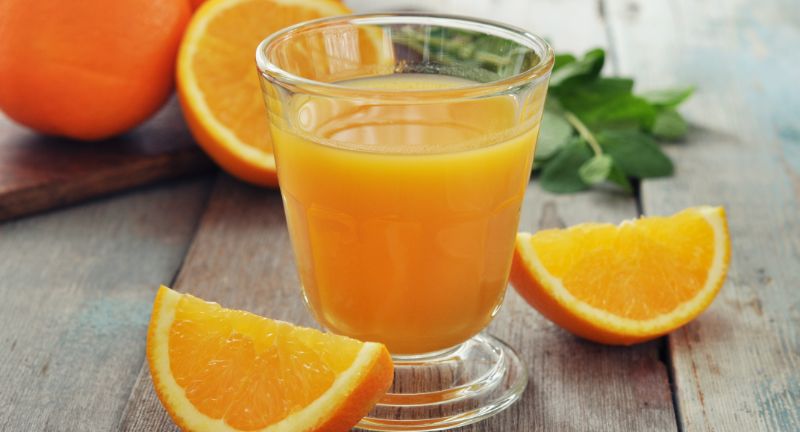
Shutterstock
Citrus fruits like oranges, lemons, and grapefruits are healthy but highly acidic. Their juices can erode enamel, making teeth more sensitive and susceptible to decay. Drinking citrus juices frequently without rinsing your mouth can accelerate enamel wear. Dentists recommend enjoying these fruits in moderation and rinsing with water afterward to reduce their acidic effects.
Sports Drinks
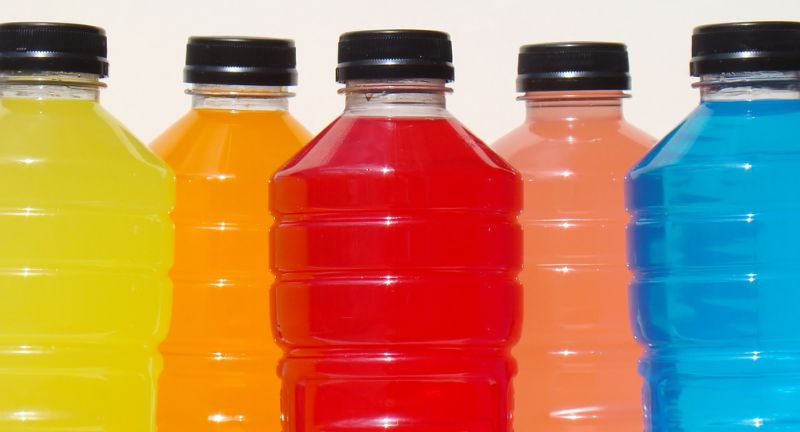
Shutterstock
Sports drinks are often marketed as healthy hydration solutions, but many are packed with sugar and acids. These ingredients can erode enamel and promote cavities, especially with frequent consumption. Athletes who sip these drinks during workouts expose their teeth to prolonged sugar and acid attacks. Water or sugar-free electrolyte options are better choices for both hydration and oral health.
Wine
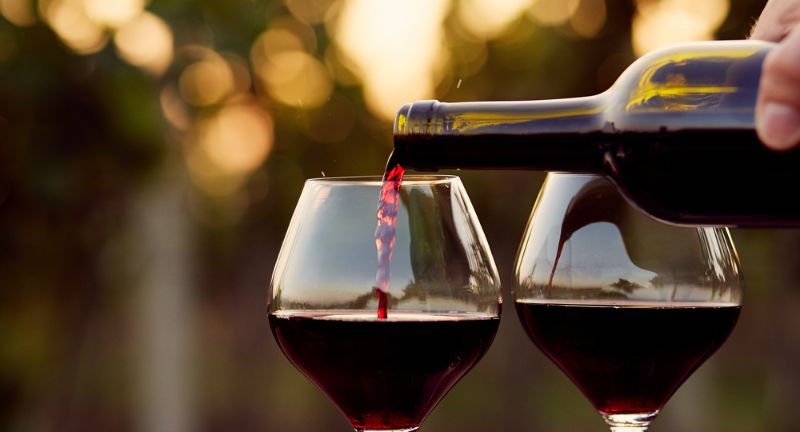
Shutterstock
Wine, whether red or white, poses risks to your dental health. Red wine is known for its staining properties, while the acidity in both red and white wine erodes enamel over time. Frequent wine consumption can leave teeth more prone to discoloration and sensitivity. Rinsing your mouth with water after drinking wine can help mitigate these effects.
Coffee and Tea with Sugar

Shutterstock
Adding sugar to coffee or tea turns a simple beverage into a cavity-promoting drink. The sugar fuels harmful bacteria, while the dark pigments in coffee and tea can stain your teeth over time. Even without sugar, frequent consumption can still lead to discoloration. Dentists recommend drinking these beverages plain or with minimal additives to protect your teeth.
Ice
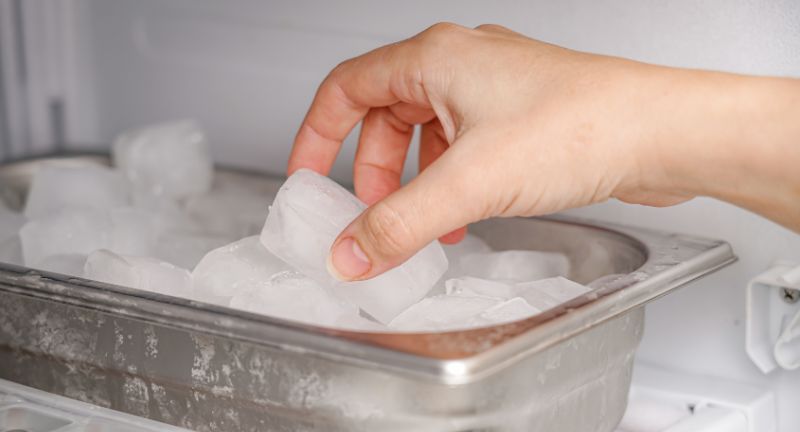
Shutterstock
Chewing on ice might seem harmless, but it can cause significant damage to your teeth. The hardness of ice can chip or crack enamel, leading to pain and sensitivity. It’s also bad for dental work, such as fillings or crowns, which can break under the pressure. Dentists advise letting ice melt naturally or avoiding it altogether.
Chips and Crackers
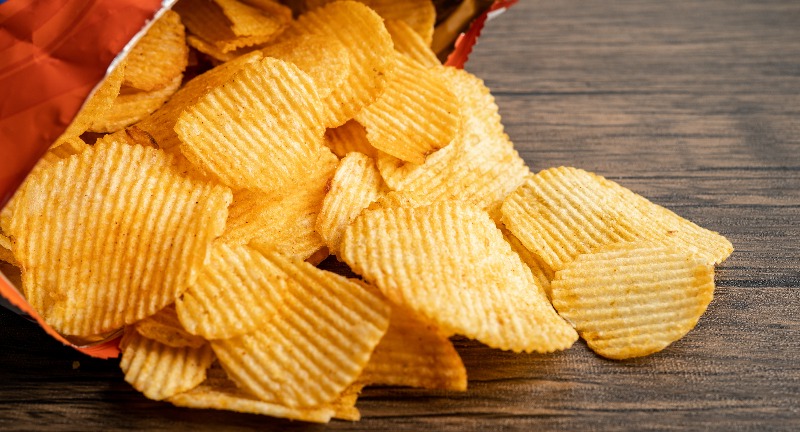
Shutterstock
Chips and crackers are starchy snacks that quickly break down into sugars in your mouth. These particles often get stuck between teeth, becoming food for bacteria. Without proper cleaning, they can lead to plaque buildup and cavities. Opting for healthier snacks and brushing afterward can help protect your teeth from these effects.
Popcorn
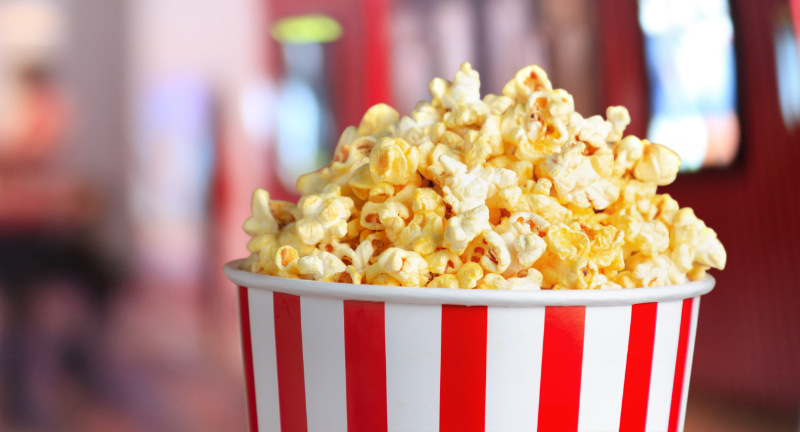
Shutterstock
Popcorn is a beloved snack, but it can be surprisingly harmful to your teeth. Kernels often get lodged between teeth, promoting bacterial growth if not removed. Biting into unpopped kernels can crack or chip teeth, causing immediate damage. Dentists recommend flossing after eating popcorn and avoiding biting down on hard kernels.
Pickles
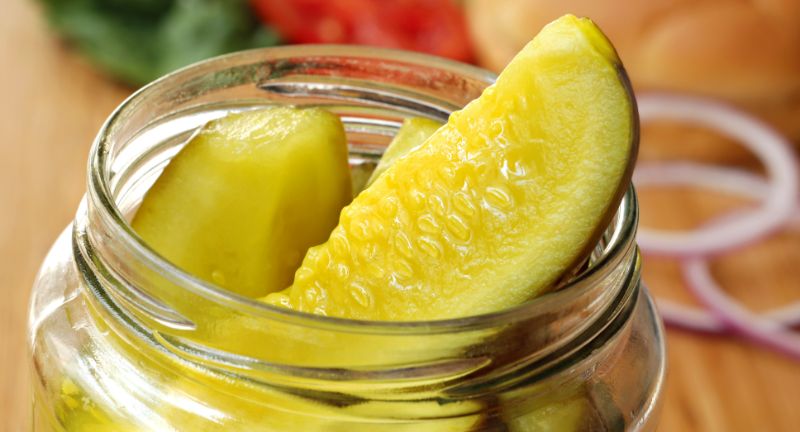
Shutterstock
Pickles are a tangy treat, but their vinegar content makes them highly acidic. Frequent consumption can erode enamel, leaving teeth more vulnerable to decay and sensitivity. The acidity also creates a breeding ground for bacteria, compounding the damage. Enjoy pickles in moderation and rinse your mouth afterward to minimize their effects.
Tomato Sauce
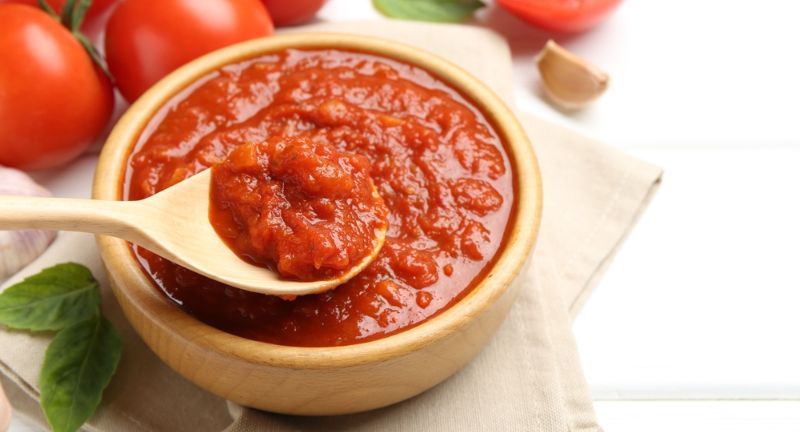
Shutterstock
Tomato sauce is both acidic and staining, making it a tricky food for oral health. The acidity wears down enamel, while its rich pigments can discolor teeth over time. Combined with starchy pasta, this creates a perfect storm for cavity development. Dentists suggest pairing tomato-based dishes with crunchy vegetables or rinsing with water to reduce these effects.
BBQ Sauce
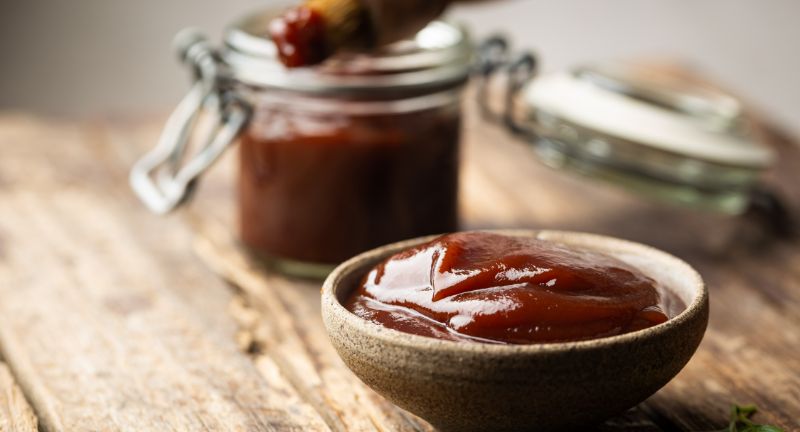
Shutterstock
BBQ sauce is a sticky, sugary condiment that clings to your teeth long after your meal is over. Its acidity also contributes to enamel erosion, compounding the damage. Regular use of BBQ sauce can lead to cavities and staining, especially if it’s not cleaned off properly. Brushing or rinsing after eating foods with BBQ sauce can help minimize its impact on your teeth.
Ketchup
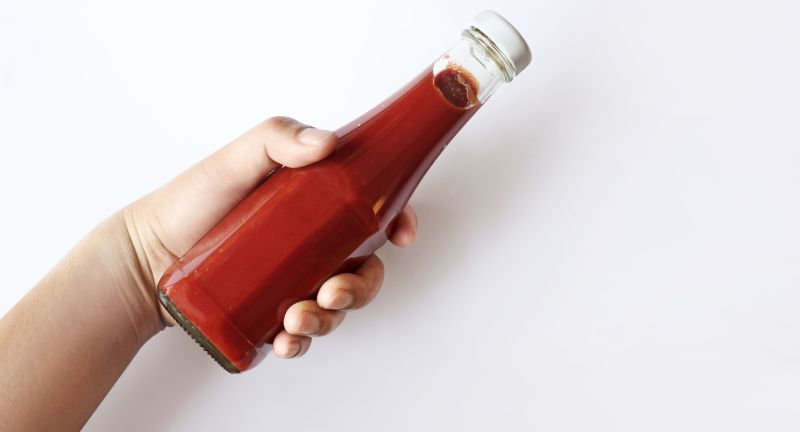
Shutterstock
Ketchup is a popular condiment, but its high sugar content and acidity make it harmful to teeth. The combination can erode enamel and feed cavity-causing bacteria. Additionally, ketchup’s red coloring can stain teeth over time. Dentists recommend using ketchup sparingly and rinsing with water after meals to reduce its impact.
Honey

Shutterstock
Honey, though natural, is a sticky sweetener that clings to teeth and gums. Its sugars provide a perfect food source for bacteria, increasing the risk of cavities. While it has some health benefits, its effect on oral health can be problematic without proper care. Brushing and flossing after consuming honey can help protect your teeth.
Ice Cream
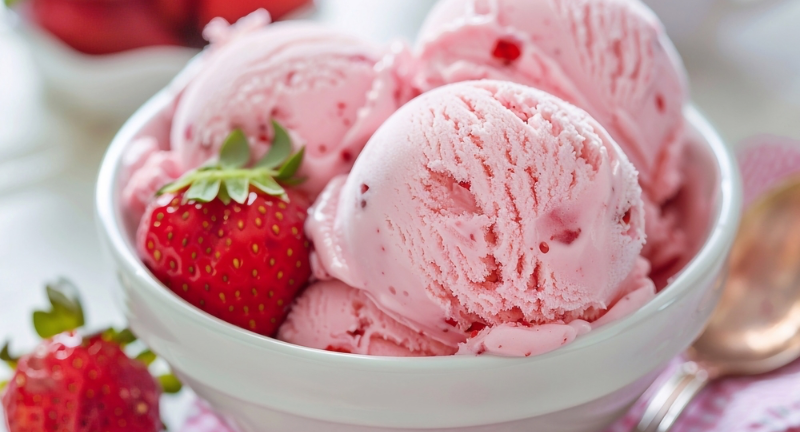
Shutterstock
Ice cream is a favorite treat, but its high sugar content makes it a concern for dentists. Sugary ice cream feeds bacteria, promoting cavities and decay. For those with sensitive teeth, the cold temperature can also cause discomfort. Enjoying ice cream in moderation and brushing afterward can help reduce its negative effects.
Alcohol

Shutterstock
Alcohol consumption can dry out your mouth, reducing saliva production, which is crucial for protecting teeth. Without enough saliva, your mouth becomes more vulnerable to bacteria and decay. Darker alcoholic drinks, like red wine, can also stain teeth over time. Drinking water alongside alcoholic beverages can help minimize their harmful effects on oral health.
Bread
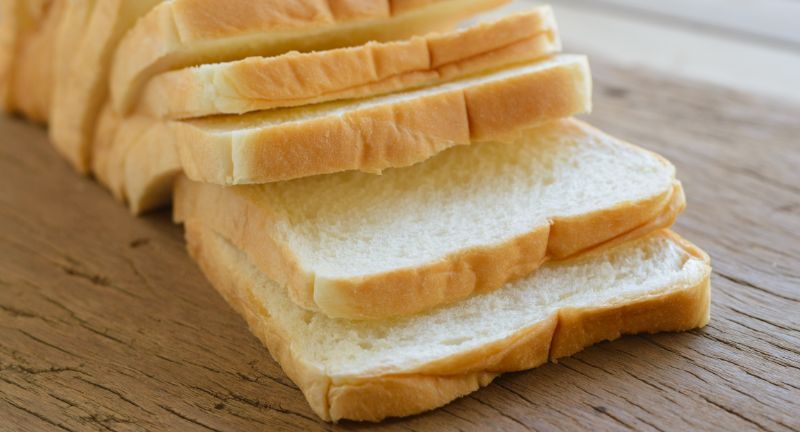
Shutterstock
Bread, especially white bread, breaks down into sugar as you chew, creating food for cavity-causing bacteria. The soft texture also makes it prone to sticking between teeth, where it can linger unnoticed. Whole grain or less-processed breads are slightly better options as they don’t break down as quickly. Brushing and flossing after eating bread can help keep your teeth clean and healthy.
Pasta Sauce
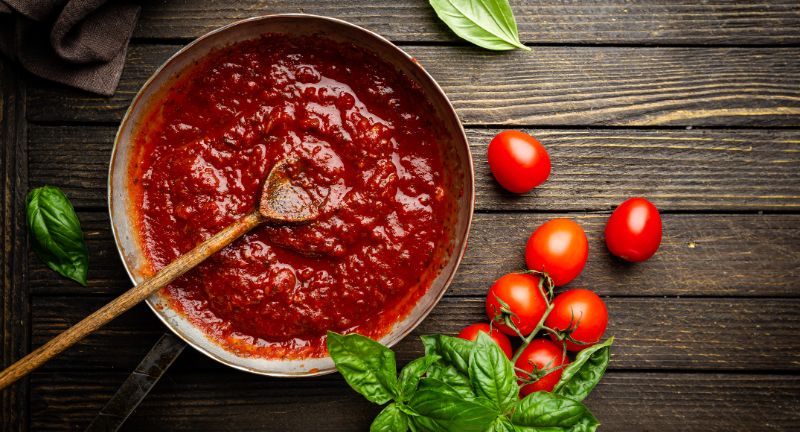
Shutterstock
Pasta sauce, with its acidic tomato base, can weaken enamel and stain teeth over time. Its vibrant red pigments often stick to the surface of your teeth, leading to discoloration. The sauce’s acidity, combined with starchy pasta, creates an environment where bacteria thrive. Rinsing your mouth with water after eating pasta sauce can help reduce these effects.
Hard Pretzels
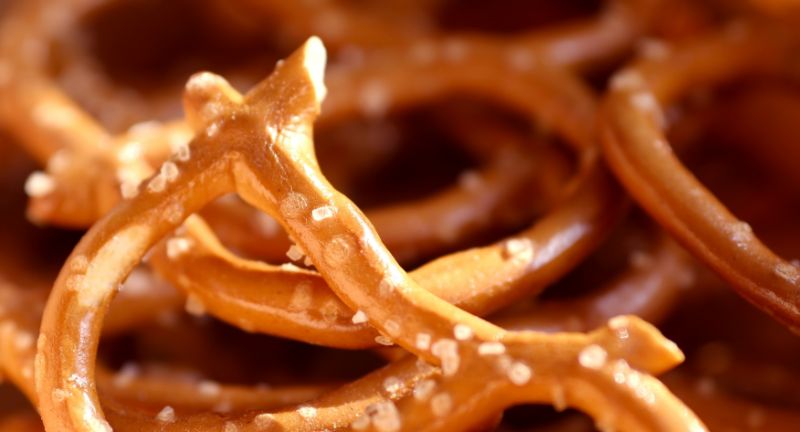
Shutterstock
Hard pretzels are a popular snack, but their dense texture can chip or crack teeth. They also break down into starchy particles that feed bacteria and increase the risk of cavities. Their hard consistency makes them particularly risky for those with dental work, like crowns or fillings. Dentists recommend eating them carefully and rinsing your mouth afterward to remove residue.
Peanut Butter with Sugar
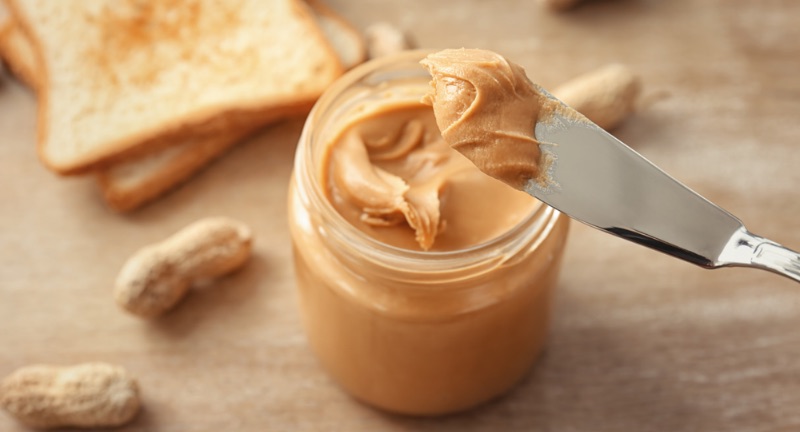
Shutterstock
Peanut butter with added sugar is a sticky snack that clings to teeth and provides a feast for bacteria. While peanut butter itself can be nutritious, the added sugars make it a cavity risk. The sticky texture also makes it harder to clean off teeth, increasing the potential for decay. Opt for natural, unsweetened peanut butter to minimize these risks.
Pancake Syrup

iStock
Pancake syrup is loaded with sugar and has a sticky consistency that clings to teeth. Its sugary coating creates the perfect environment for bacteria to thrive, leading to cavities and decay. Even natural syrups like maple syrup can have similar effects if not cleaned off properly. Dentists suggest brushing and rinsing after consuming syrup to protect your enamel.
Frosting
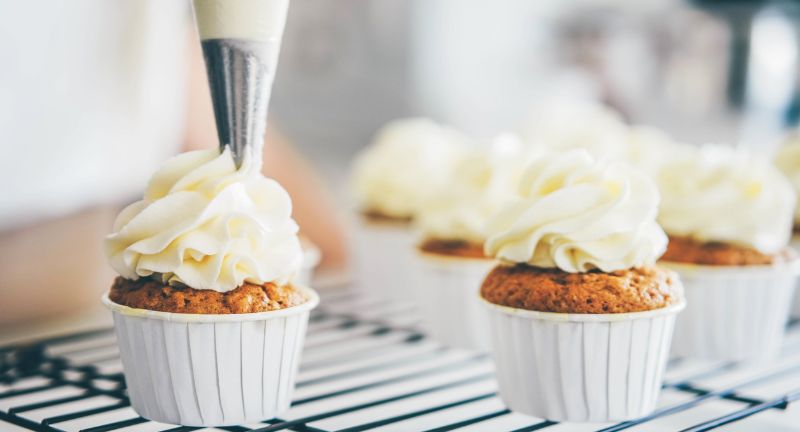
iStock
Frosting is a sugary topping that not only tastes sweet but also wreaks havoc on your teeth. Its stickiness allows sugar to linger on enamel, feeding bacteria and increasing the risk of cavities. Frosting often contains artificial colors that can stain teeth over time. Enjoy it sparingly and clean your teeth thoroughly afterward to minimize its impact.
Hard Breadsticks
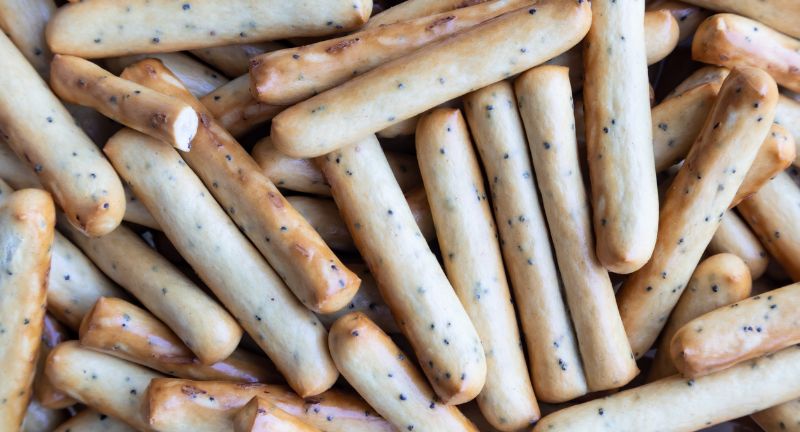
iStock
Hard breadsticks can chip or crack teeth if bitten into carelessly. Additionally, their starchy nature turns into sugar in your mouth, feeding bacteria that cause cavities. They often leave small particles lodged between teeth, which can lead to plaque buildup if not cleaned properly. Choose softer alternatives or brush and floss after eating to protect your teeth.
Sugary Cereal
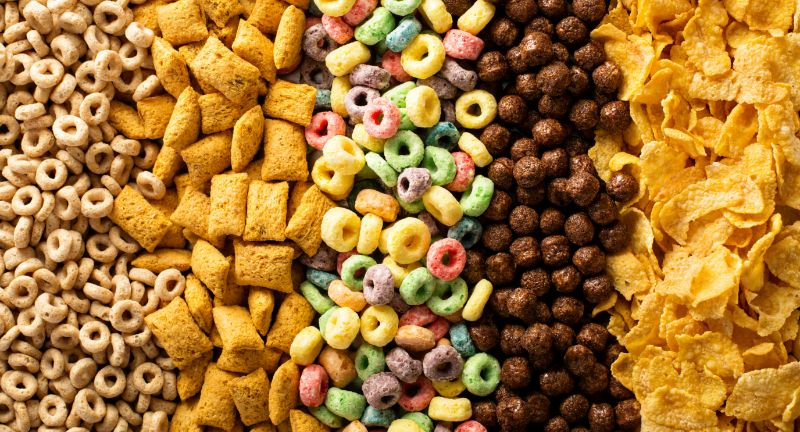
iStock
Sugary cereals are a favorite breakfast choice but pose significant risks to oral health. The sugar content feeds bacteria, while the sticky pieces often adhere to teeth and gums. Eating cereal with milk adds another layer of sugar exposure, increasing the risk of decay. Dentists recommend choosing low-sugar or whole-grain cereals to reduce these effects.
Granola Bars
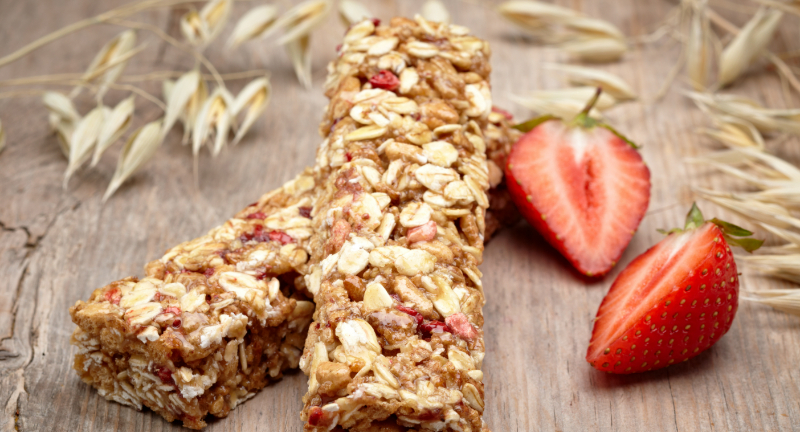
iStock
Granola bars, though marketed as healthy snacks, are often packed with sugars and syrups that cling to teeth. Their sticky texture makes them difficult to clean off, increasing the risk of cavities. Many granola bars also contain dried fruits, which add to their sugar content and adherence to enamel. Brushing and flossing after eating granola bars can help minimize damage.
Conclusion

iStock
Being mindful of the foods you eat is essential for protecting your teeth and maintaining good oral health. While it’s tempting to indulge in sugary snacks or acidic treats, moderation and proper dental hygiene can minimize their impact. Your dentist doesn’t expect perfection but hopes you’ll take steps to protect your enamel and avoid unnecessary cavities. By making smarter choices and practicing regular oral care, you can keep your smile healthy and bright. Remember, your teeth are with you for life—treat them with care.
Related Topics:

More From Lifestylogy
-
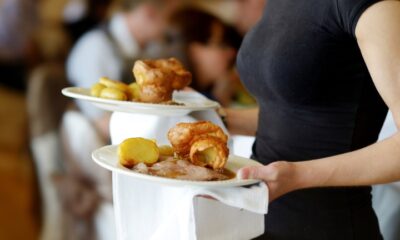

25 Things Only Servers Understand
-


What Is Hydroponics, And Why Is It So Important?
-
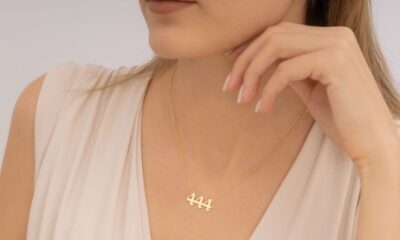

The Ultimate Guide to Angel Numbers and Their Meanings
-
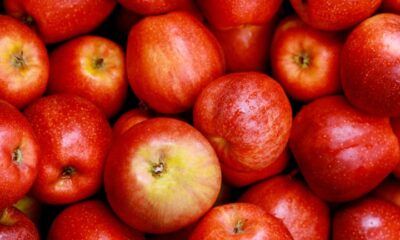

20 Different Types Of Apples And What They Are Best…
-


24 Uses For Bananas That Are Oddly Practical
-
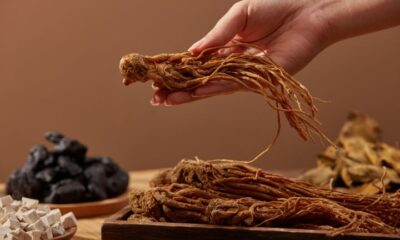

25 Herbs That Are Essential To Chinese Herbal Medicine That…
-


Hardwood Is The Best: Here’s Why
-


25 Green Vegetables That You Should Be Eating
-


Why Grapes Are One Of The Best Fruits